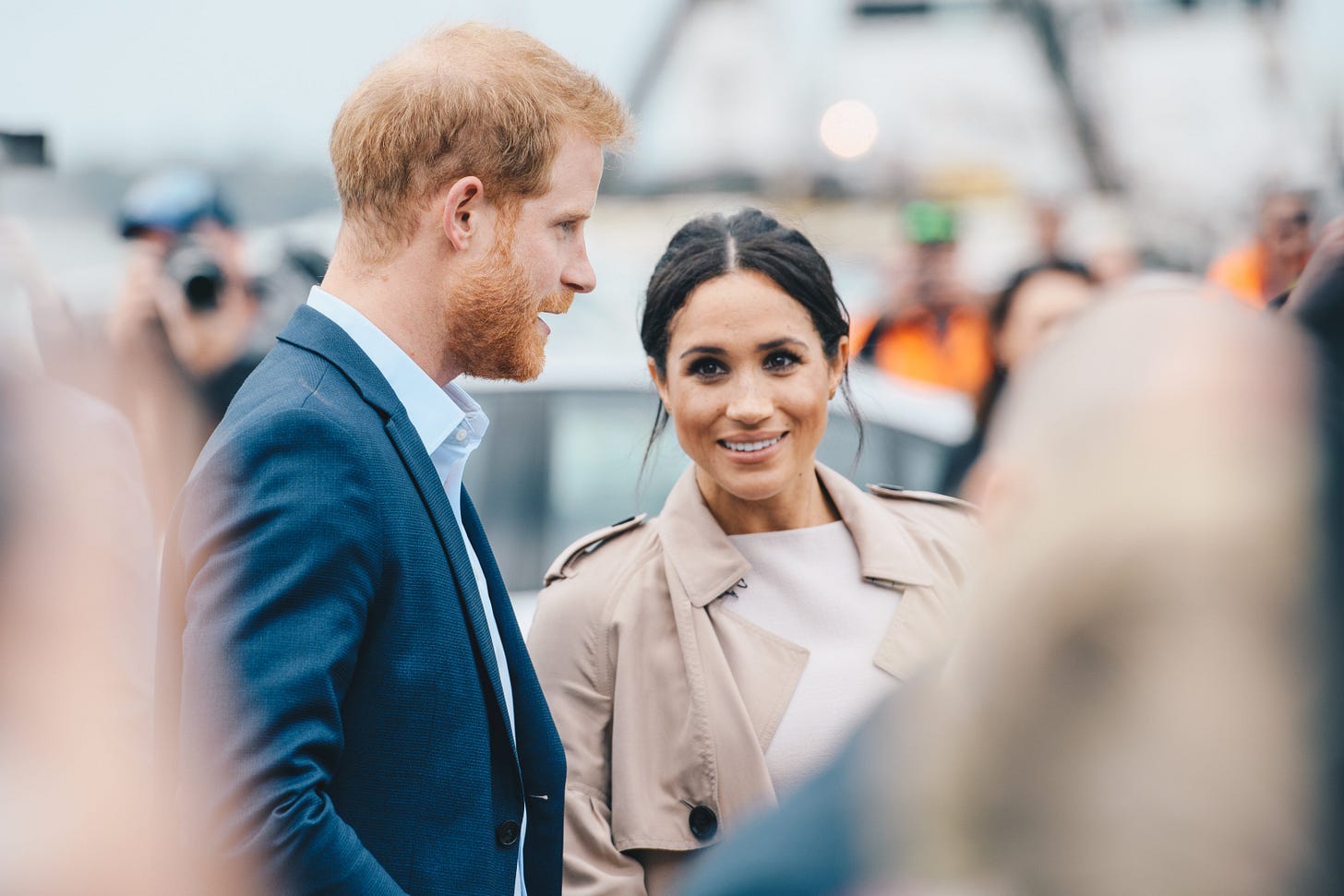Worse Than “Gigli”
Harry and Meghan Are Doing Themselves No Favors with Their Panned Netflix Series
(Image used under license from Shutterstock.com.)
It’s hard to imagine there’s any more to say than has already been said about the first half of the Netflix series “Harry & Meghan.” But I urge you to read the reviews, for it is there, unlike in the series itself, that there is a very interesting story.
Until now, there’s been a transatlantic divide over the couple. Traditionally, Americans think they are great, liberated independents speaking truth to power. The English think they are treacherous, self-involved publicity-seekers who are as guilty as the press they despise of milking (and knocking) the institution that created them for money.
But this past week, I googled, searching in vain for an American publication that had a wholly positive review of this series. And I couldn’t find a single one. The New York Times deemed the series a tedious Instagram story, calling it “an image-making exercise for the endless scroll.” Peggy Drexler, writing for CNN, said “it’s self-promotional, self-aggrandizing and, frankly, a little boring.”
It seems that even the liberal U.S. media has finally seen through this paper-thin PR exercise and realized that the couple’s narrative is rather more about self-service than public service, and that, yes, even in our social-media-driven-world there is still such a thing as over-exposure. The series’ audience score on Rotten Tomatoes stands at the time of writing at a miserable 11 percent. That is even worse than the score for the fiasco of a movie that was “Gigli,” which is currently at 13 percent.
For Harry, in my humble view, this has been far more disastrous than for Meghan, who is exactly who we knew she was. But Harry? He’s been exposed as being just as bubble-wrapped as the family he’s selling out. When in the series he unironically slammed the tabloid press as exploiting the royal family for money, I wondered if Liz Garbus, the director, was going to ask him how much he was paid by Netflix for doing exactly the same. But no. Maybe the omission is more telling than anything he could have said.
Next, Harry wants us to believe the whole royal family has “unconscious bias.” No doubt, like all white people, they do. But then he’s asked about the episode in which he wore a Nazi uniform to a costume party. Well, he says (and I’m paraphrasing), it’s the biggest mistake he ever made, and he flew to Berlin to meet a Holocaust survivor and also sat down for a chat with a rabbi. And then…well there is no more then. The topic is closed. But there was nothing “unconscious” about the 20-year-old Harry’s bias in wearing that uniform.
Are we supposed to believe that because of this very privileged exercise (not everyone gets flown to Berlin and has a one-on-one meeting with a senior rabbi, after all), he’s healed of whatever insanity and prejudice it was that drove him to do such an offensive thing?
Wow.
I’d have expected tough and revealing journalism from director Liz Garbus. Where were some really basic questions?




